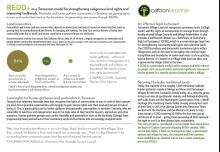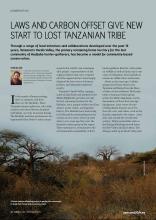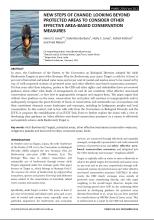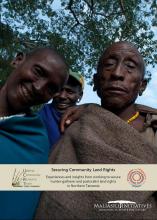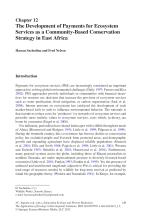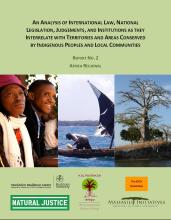Land Library
Welcome to the Land Portal Library. Explore our vast collection of open-access resources (over 74,000) including reports, journal articles, research papers, peer-reviewed publications, legal documents, videos and much more.
/ library resources
Showing items 1 through 9 of 23.Pastoralist and hunter-gatherer communities in Tanzania are gaining rights to own and control their land as the foundation for generating new income through REDD+
In recent years, there has been growing attention and effort towards securing the formal, legal recognition of land rights for Indigenous Peoples and local communities.
Through a range of local initiatives and collaborations developed over the past 15 years, Tanzania’s Yaeda Valley, the primary remaining home territory for the last community of Hadzabe hunter-gatherers, has become a model for community-based conservation.
In 2010, the Conference of the Parties to the Convention on Biological Diversity adopted the Aichi Biodiversity Targets as part of the Strategic Plan for Biodiversity 2011-2020.
The participatory rights of indigenous peoples have been at the center of conflicts over resource extraction, which have recently increased in number and intensity across Latin America.
Costa Rica, the subject of this article, is an upper middle income country that is widely regarded as having a generally positive human rights record.
In this publication two pioneering grassroots organisations from northern Tanzania examine and present their experiences and insights from their long-term work to secure the land rights of hunter-gatherer and pastoral communities.
This paper explores the development of a pilot PES scheme in the Tarangire ecosystem of Tanzania in response to specifi c wildlife declines and policy constraints. It charts the development of this initiative from its genesis based on PES experiences in Kenya.
This report provides a synthesis of three country level case studies (Namibia, Senegal, Kenya) carried out in African countries as a part of the overall legal review of Indigenous People’s and Community Conserved Territories and Areas (ICCAs).

